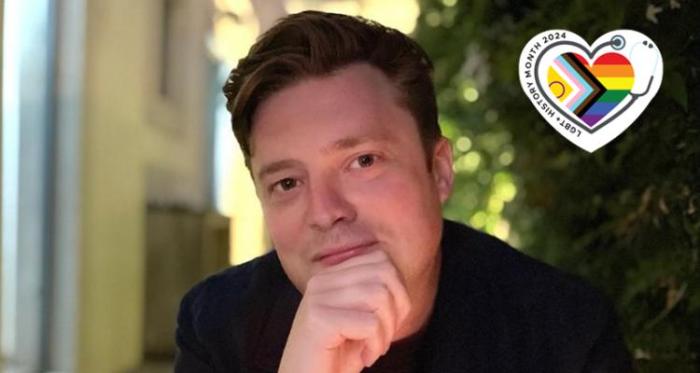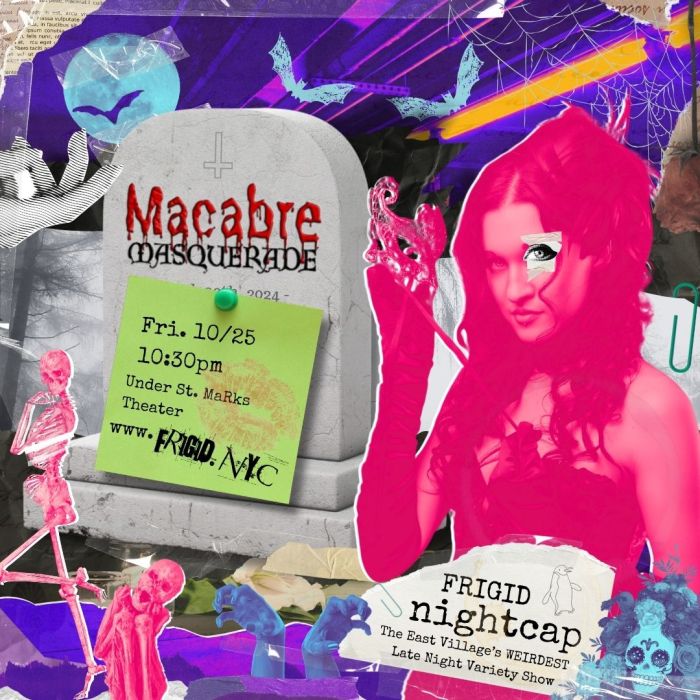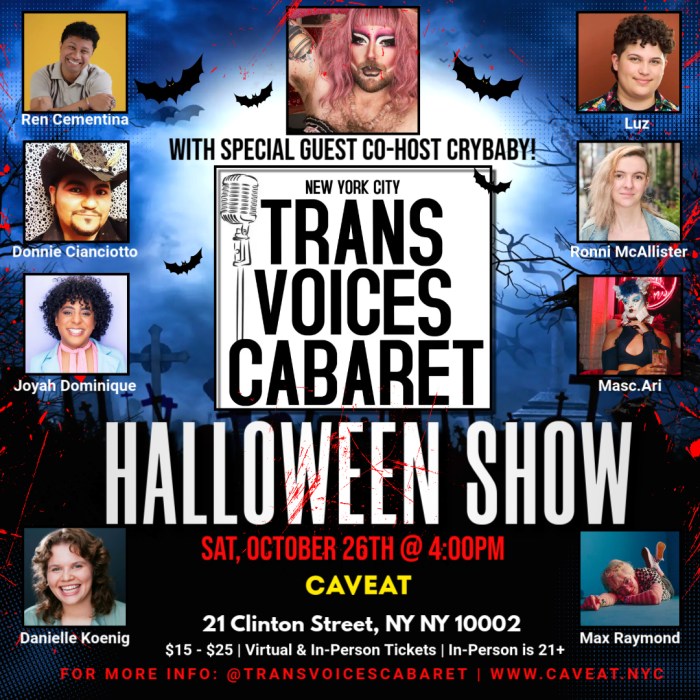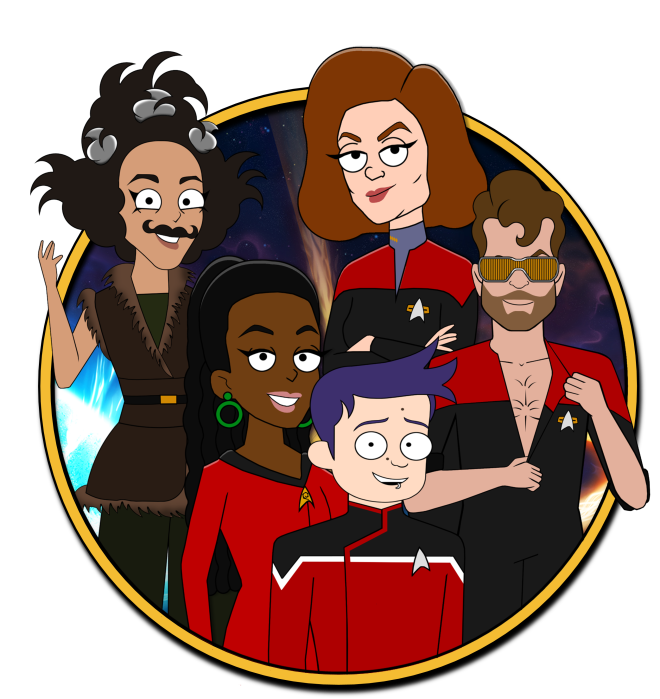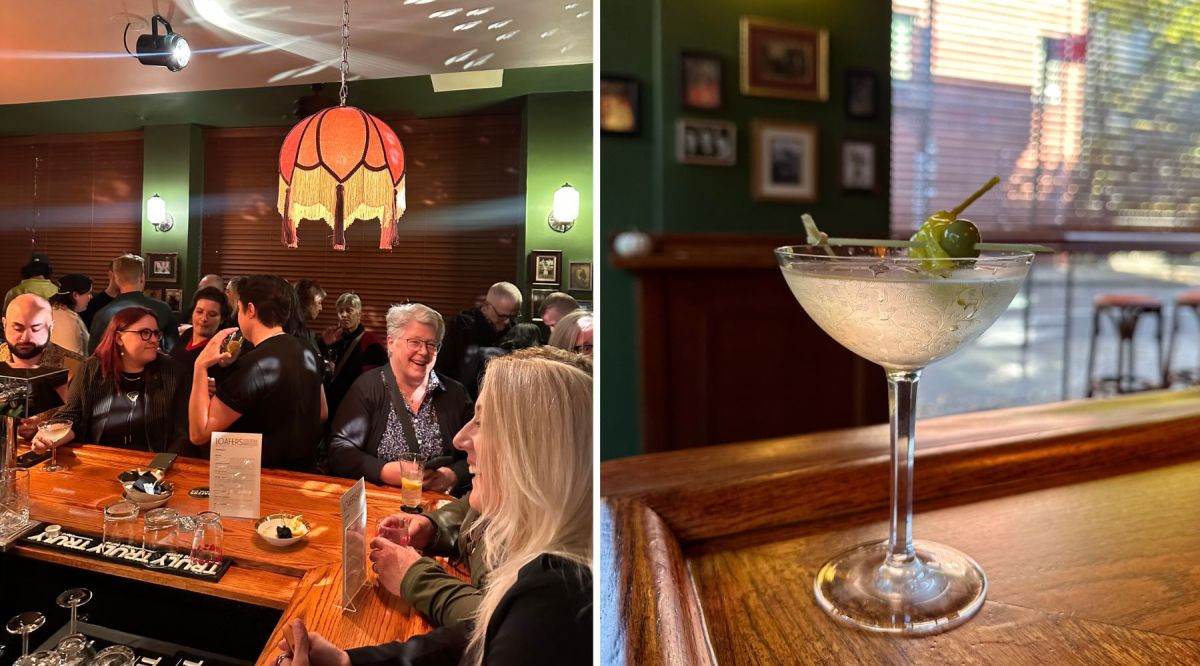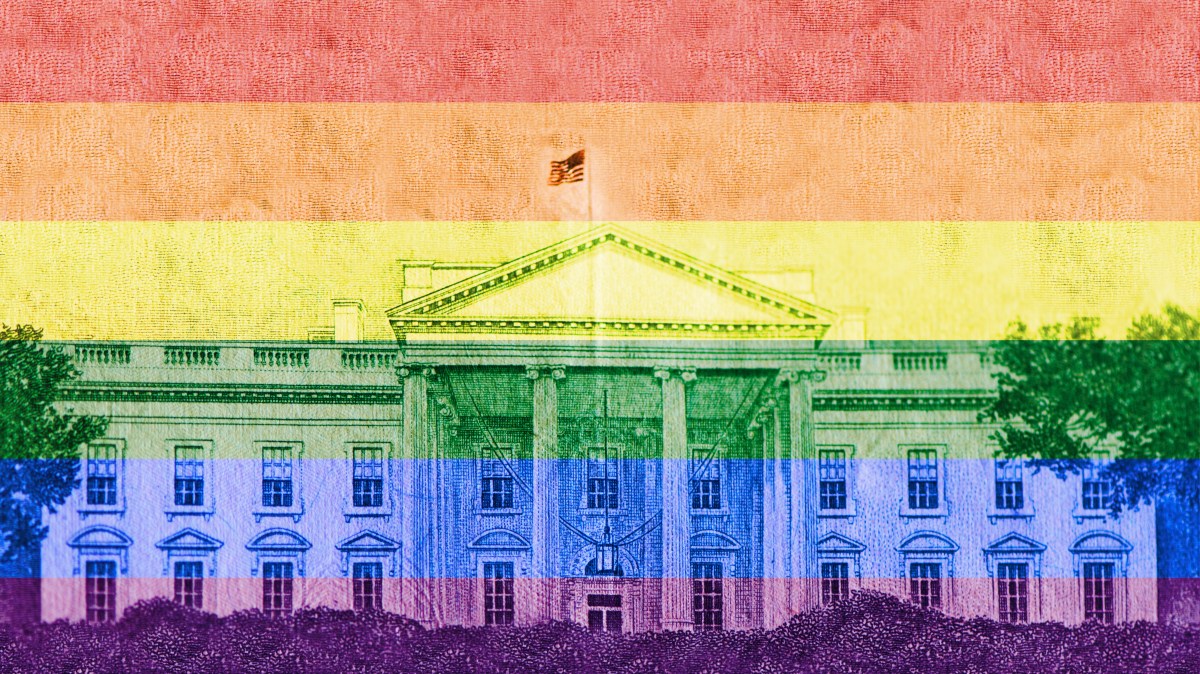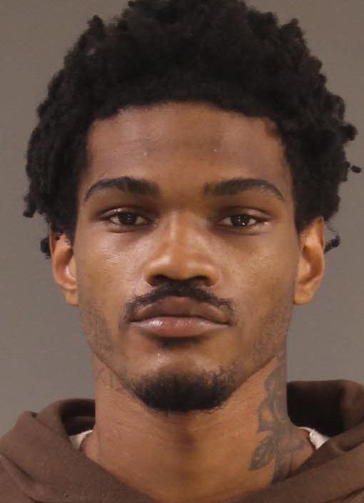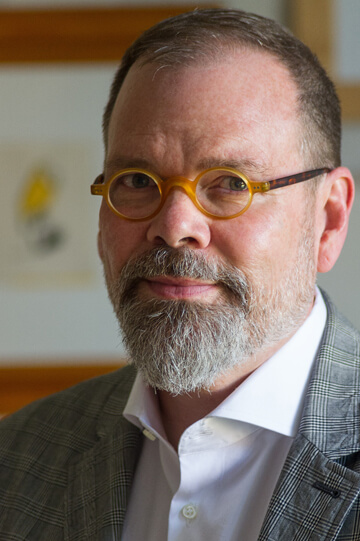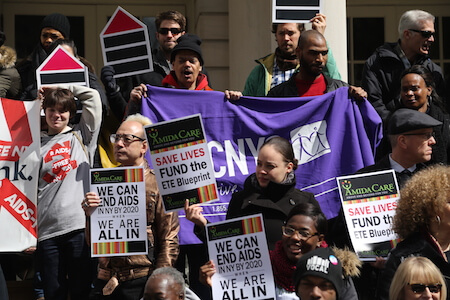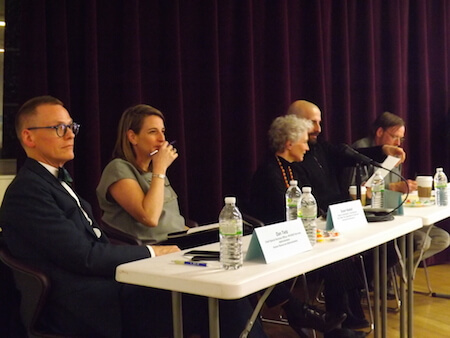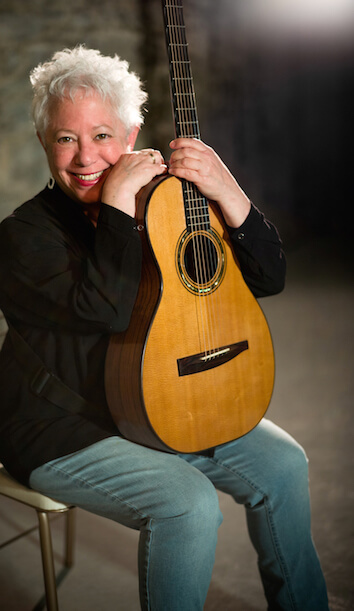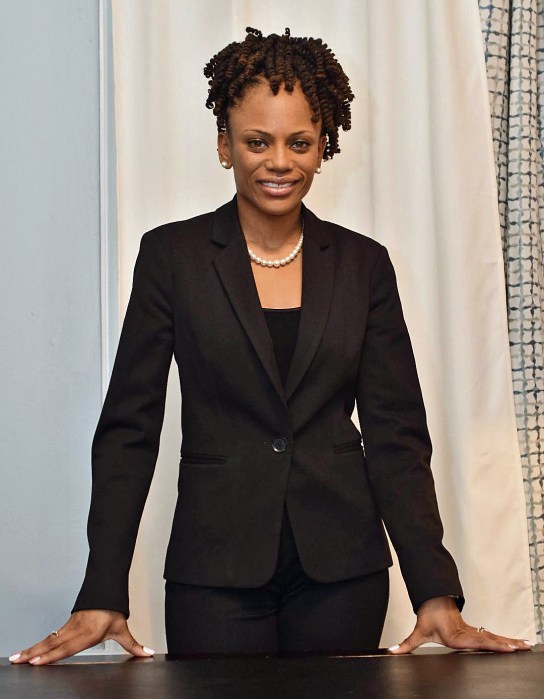On the first day of school in 1992, when broke poets could still afford loft shares on Avenue B, Kelly Cogswell scrounged a subway token to get to the first-ever Lesbian Avengers action in Middle Village, Queens. Right-wing groups in New York had raged for months about the Children of the Rainbow Curriculum, a Board of Education-approved teaching resource with a few optional pages of gay-friendly content. In Middle Village, the epicenter of the rage, the newly organized Avengers appeared outside an elementary school with a brass band and lavender balloons imprinted “Ask about lesbian lives.”
In her memoir “Eating Fire: My Life as a Lesbian Avenger,” Cogswell describes how awkward she felt, even as she pretended to act cool, like she did this kind of thing three or four times a week. She still cringed at the word “lesbian” and wouldn’t wear the T-shirt that said, “I was a lesbian child.” “Eating Fire” goes on to narrate a lifetime passion for street activism, performance, and lesbian visibility that often transforms the performer as much as the audience.
The Lesbian Avengers literally ate fire — an alternative circus performer taught a small cadre to tie kerosene-soaked rags to long poles, light them, and take the flames into their mouths while carefully exhaling to extinguish them. Used for the first time at a nighttime protest memorializing a gay man and a lesbian killed in their home in Oregon by firebombing, fire-eating was a breathtaking visual statement of fearlessness. The Avengers chanted, “The fire will not consume us. We take it and make it our own.”
Kelly Cogswell recounts the Lesbian Avengers’ brilliant visibility and her own emerging confidence
The Avengers burned brightly for a few years in a cityscape that included a beleaguered ACT UP, the Women’s Action Coalition, and the Women’s Health Action Mobilization; unlike the other groups, they were focused solely on “issues vital to lesbian visibility and survival.” Eventually they fizzled out, as creative direct-action groups often do, with infighting and an inability to transmit the principles of direct action to newcomers.
“Eating Fire” chronicles almost two decades of Cogswell’s life, including, after the Lesbian Avengers, editing the online news magazine Gully, and traveling to Kentucky, Cuba, and Paris, all with her longtime lover, Cuban-American playwright Ana Simo. The headlines of those decades become part of Cogswell’s personal history, from Elian Gonzales to 9-11 to riots in the Paris banlieues. The heart of the book, though, is those few dramatic years with the Avengers, when Cogswell, now a Gay City News columnist, found her voice as an activist.
Cogswell nails some of the Lesbian Avengers’ signal accomplishments and failures. In a creative partnership with Latina lesbian group Las Buenas Amigas, a group of Avengers briefly took over New York’s most-listened-to Spanish-language radio station, Radio Mega KQ, replacing its usual racist, homophobic shock-jock jokes with demands for an end to hate radio. The Lesbian Avengers Civil Rights Organizing Project effectively mobilized working-class people and people of color against anti-gay legislation in Idaho and Maine, while more mainstream groups pursued ineffectual assimilationist strategies.
The Lesbian Avengers also had the fabulous idea for the Dyke March, which began in DC the night before the 1993 March on Washington and drew an unexpected 20,000 marchers and has since become a refreshing counterpoint to Gay Pride parades in cities all over the US for almost 20 years. The Dyke March, unlike a Pride parade, is a lesbian-led protest without a permit, in the evening, without distinct groups in a prescribed order. It’s just a sea of queer women, in all shapes and sizes and colors.
On the other hand, some actions fell flat. She describes, hilariously, attempting to stink-bomb St. Patrick’s Cathedral in a “Homophobia stinks” campaign and realizing she was hopelessly undersupplied:
“The space was too enormous for a little stench to penetrate. We needed a crew of twenty and a crate of stink. We decided to go ahead anyway. I dropped a couple of glass vials on the floor, but when I stepped on them with my tennis shoes, they wouldn’t break. Melanie finally crushed them with her big Doc Marten boots. But in the big cathedral, the vials barely had the impact of a fart.”
Cogswell writes a bit about her performance art: the full-body shaving episode that apparently got her kicked out of NYU, the installation in her apartment involving a giant caduceus made of 2 x 4s and barbed wire, a treadmill, and a hospital gown. She also writes about how she intentionally took on roles in the Lesbian Avengers that forced her to get comfortable saying the word lesbian. In describing the first Dyke March, though, she really gets at the impact of performance on the performer:
“The message of the Dyke March was in our bodies. All twenty thousand of them there together in front of the White House, lit up with flame. We were disorderly, raucous, happy to be behind our own lesbian banner for a change… I suppose that would be my Lesbian Dream if I could describe it now. To be big enough to count. To take up space in the great brain of the country, for even ten minutes a day. To be free.”
The fire has not consumed Cogswell, but she definitely has a few burn scars. Her voice, though humorous, is charred in places with the disappointment and frustration of shattered alliances, imploded organizations, continuing discrimination and violence, and the difficulty of raising a strong voice of protest in a society that so easily co-opts or silences any real dissent.
A thorny, uncomfortable awareness of race and racism crops up on almost every page. In places, Cogswell comes across as self-conscious and defensive in response to anti-racist critiques (was it really a good idea to call the Lesbian Avengers bus trip through New England a “Freedom Ride”?). She is brutally honest, however, about the paralyzing shame that can keep white activists from having forthright discussions about race, class, culture, and power in their own organizations, and sometimes even from acting at all.
“Eating Fire” is a sometimes entertaining, sometimes painful read. It recounts an important chapter in queer history along with some useful principles of direct action: it’s good to be brave, it’s all right to be silly and playful, it takes a lot of work and planning, you will fight with the people with whom you take risks, and you will also love them with a great tenderness. And sometimes it’s worth acting for your own transformation, proving to yourself that you’re not afraid of the flames.
EATING FIRE: MY LIFE AS A LESBIAN AVENGER | By Kelly Cogswell | University of Minnesota Press | $19.95, paperback; $60, hardcover |256 pages
Kelly Cogswell reads from “Eating Fire: My Life as a Lesbian Avenger,” at Bureau of General Services — Queer Division at Cage, 83A Hester St., btwn. Orchard & Allen Sts. March 15, 7 p.m. A donation of $5 is suggested to support the work of the Lesbian Avenger Documentary Project. More information at contact@BGSQD.com.
Beth Stroud was the founding editor-in-chief at LGNY, Lesbian and Gay New York, and is currently working toward her Ph.D. at Princeton University.


